▲ NYCU’s NVR Vulpes Racing Team, Taiwan’s longest-running FSAE team, will debut its latest electric race car at FSAE Japan 2025, showcasing cross-disciplinary innovation, teamwork, and student-driven passion ©NYCU ELITE
In the 1980s, the Formula Society of Automotive Engineers (FSAE), which originated in the United States, gradually expanded to Europe, Australia, South America, Asia, and other regions and has now set up races in 18 countries, attracting more than 500 universities and over 800 teams to participate in the race every year. Winning an award in the FSAE will allow you to be recruited by a car manufacturer or a fleet to work in the industry; hence, renowned universities worldwide are actively organizing fleets to participate in the event. Among the universities in Taiwan, National Yang Ming Chiao Tung University (NYCU) first established the ‘NVR Vulpes Racing team’ (NVR team) in 2008, which has the most extended history among others. From then on, top universities such as National Taiwan University (NTU), National Taiwan University of Science and Technology (NTUST), National Taipei University of Technology (NTUT), National Tsing Hua University (NTHU), and National Cheng Kung University (NCKU) all organized their fleets one by one, leading to a growing trend among the students to build their cars.
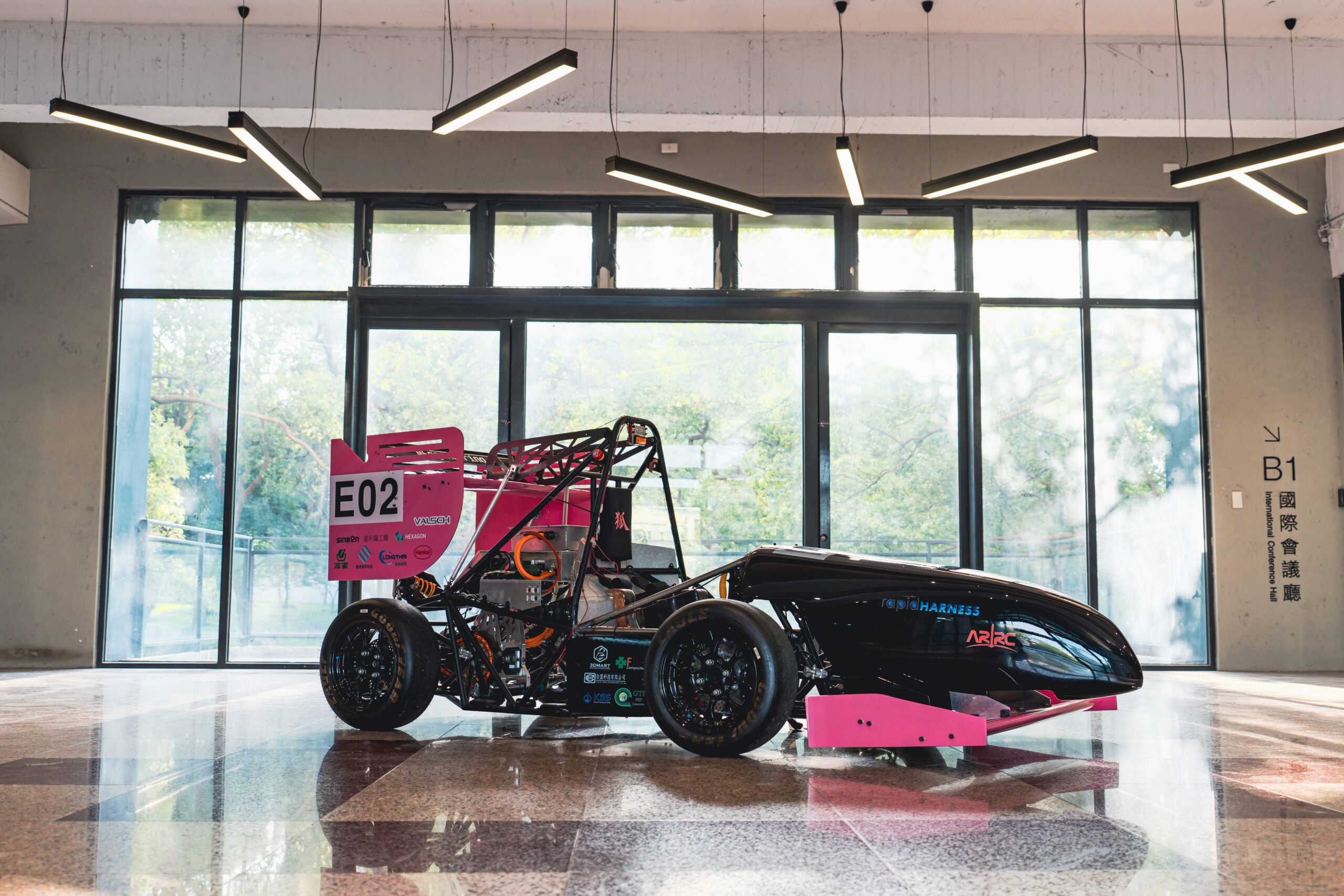
After completing the first three generations of racing cars, the NVR team stagnated due to technical and financial problems. Only in 2019 would the new generation of team members relaunch the NVR Vulpes Racing team operation while actively designing and building the latest generation of racing cars and winning the first “Formula Student Taiwan (FST)” championship in 2021. In September 2025, the NVR Vulpes Racing team plans to participate in the FSAE Japan with its newly completed electric car VR7.5, hoping to outshine the formidable rivals worldwide and steal the show.
However, FASE is not only a competition for car speed but also a trial of the fleet’s comprehensive management strength. Chu Wei Yang, the NVR Captain, said the organizer asked the participating universities to treat the fleet as a “company,” which not only demonstrates the vehicle design, performance, and the team’s ability to solve the technical problems in the field but also has to demonstrate to the judges the administrative skills of marketing and promoting, cost control and business planning, etc.
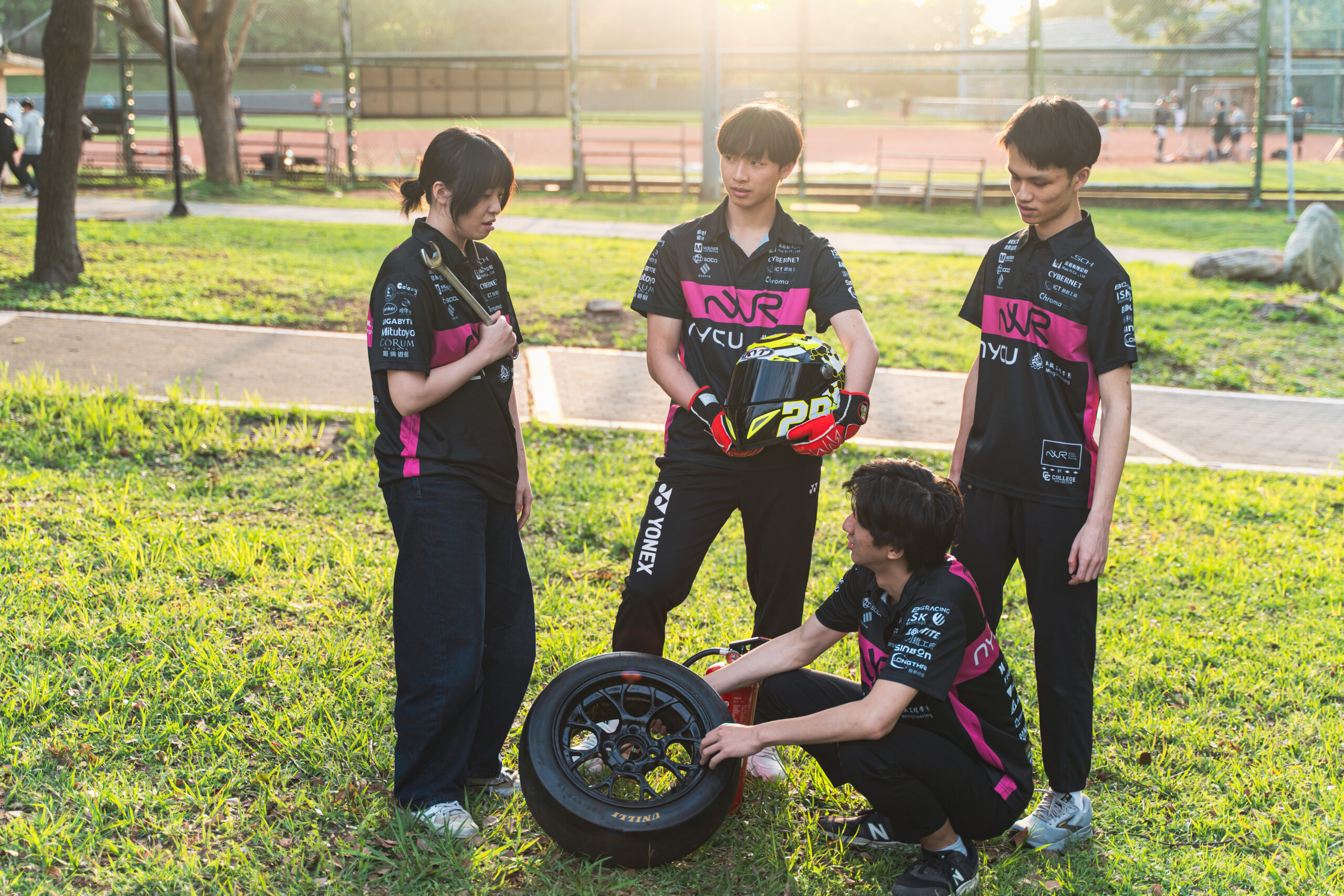
Think out of the box and move toward sustainable management
From the design of the competition items, it is not difficult to understand the expectations and imagination of the automotive industry for the ability of potential professionals. To enable the team members to deeply understand and adapt to the culture of the automotive industry and to connect with the industry as soon as possible, “cross-disciplinary learning” has become the core spirit emphasized most by the fleet, and the team members are also encouraged to think out from the box of their disciplines and to venture into their areas of interest. Po-Chun Kuo, the team’s Chief Engineer (CE), shared, “My focus was on the technical aspects; however, I later realized that administrative affairs, such as fundraising, public relations, product producing, and sponsor reaching, are all related to the technology. Therefore, I need to acquire knowledge in this administrative area as well.”
“In the workshop, there are students from the Department of Management Science working with hammers, also students from the College of Humanities, Arts, and Social Sciences learning to weld and draw design drawings, and students from the Department of Mechanical Engineering and Department of Electrical Engineering in charge of administration and clerical duties,” said by Yang. The scene described by him shows that “cross-disciplinary learning” is not a slogan but a daily routine in the NVR team. Even the drivers in charge of driving must also perform technical or administrative duties for the fleet. “Drivers must not just want to drive; they must know how their cars are made!” Yang emphasized.
Although the fleet is actively implementing cross-disciplinary learning and encouraging team members to participate in administrative affairs, it is admittedly true that the “technical team,” which includes suspension, aerodynamics, transmission, software, vehicle frame, and electrical systems, is still the mainstay for fleet operation. To avoid the overall car building process overly relies on a small number of technicians, leading to delays in progress and even affecting administrative efficiency, under the leadership of the Team Manager, Yi Chin Hsieh, who is a student at the College of Management, the fleet tried to set up a “project manager” in each of the six technical groups to assist in progress control, cost control, and cross-group communication and coordination internally and to reach with sponsors externally, thus becoming the most considerable support for the technical groups.
Yang pointed out that adding project managers for each technical group under the Captain, Chief Engineer, and Manager is a rare pioneering idea for domestic students’ formula fleets. After all, even in private companies, project managers are not a very popular position, but their function as “checks and balances” is extremely important. Besides, Yang and Kuo said in unison, “A project manager must not just press or ask questions; he or she has to understand the technology to come up with a solution.” This not only highlights once again that the core spirit of “cross-disciplinary learning” is indeed a practical necessity but also demonstrates the fleet’s mobility and determination to reform from an administrative perspective and move towards sustainable management after the team went through the crisis of stagnation.
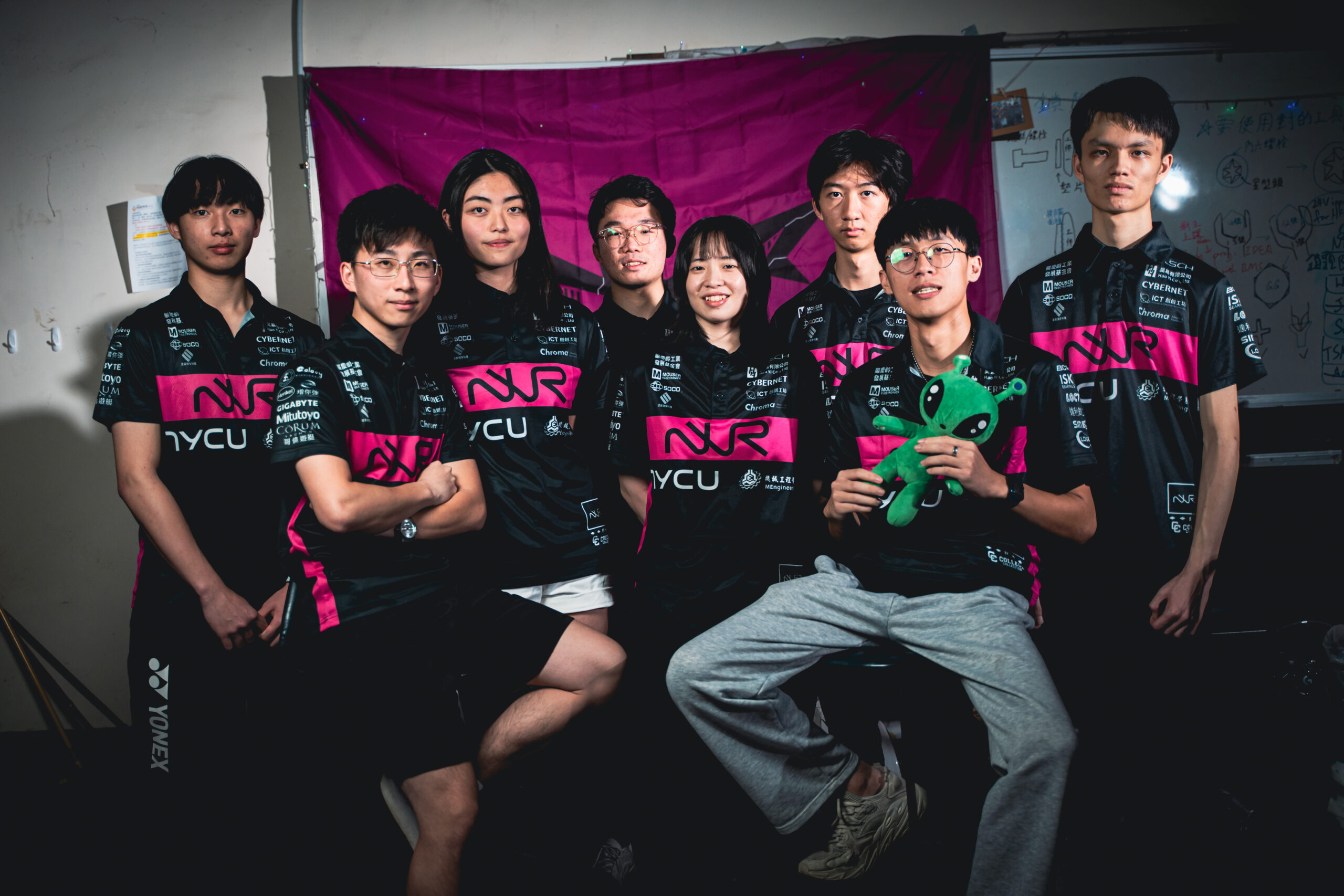
Burning passion and watering dreams with sweat
NYCU is often jokingly called a “homework university,” implying the overwhelming pressure of NYCU’s schoolwork. In addition, the NVR team is a student club, so it is unavoidable for team members to change frequently due to graduation, schoolwork, and other factors. Therefore, “passion” is an indispensable “fuel” to support the fleet’s progress.
“When I was at the club exhibition, new students would often ask, ‘Will the loading be heavy?’ and I always say, ‘Whether the loading is heavy depends on whether you have enough passion.’ If you are interested and passionate about racing cars, you will proactively learn welding and management, and you won’t think it is loading. Instead, you will think it is your own responsibility.” Yang believes that building a car is not always “fun”; there will inevitably be some moments of tedium or the need to fix problems back and forth. During the welding processes, he has burned several welding machines at once and has been burned and bled. “But this is my sense of accomplishment. I have burned my passion for this car, and I will always feel that this car is my treasure!”
Kuo recalled that the night before the launch of the 2025 VR7.5, nearly 20 team members stayed up late until 4 or 5 in the morning. to make sure that the new car could be successfully unveiled, and that some team members stayed up all night to edit the video. “Everyone drank several cans of refreshing beverages.” When the presentation was successfully completed on the showcase, a sense of accomplishment instantly replaced all the exhaustion, but he laughed and said, “Although tears were about to fall from my eyes, I wanted to sleep more than anything else!”
But it is not just passion that a student fleet burns; it is probably also the money. Participating in the upcoming FSAE race in Aichi-ken Japan will cost more than $1.2 million, just for the transportation fee of vehicles and equipment and registration fee, not including the nearly $4 million cost of building the cars. The team members have decided to pay for their own transportation and accommodation costs of about 35 thousand in advance to ensure and target a successful trip. After deducting the sponsorship amount from NYCU and sponsors, there is still a funding gap of more than a million dollars, and the team plans to raise money through fundraising platforms. “We are responsible for the race we want!” Yang said firmly.
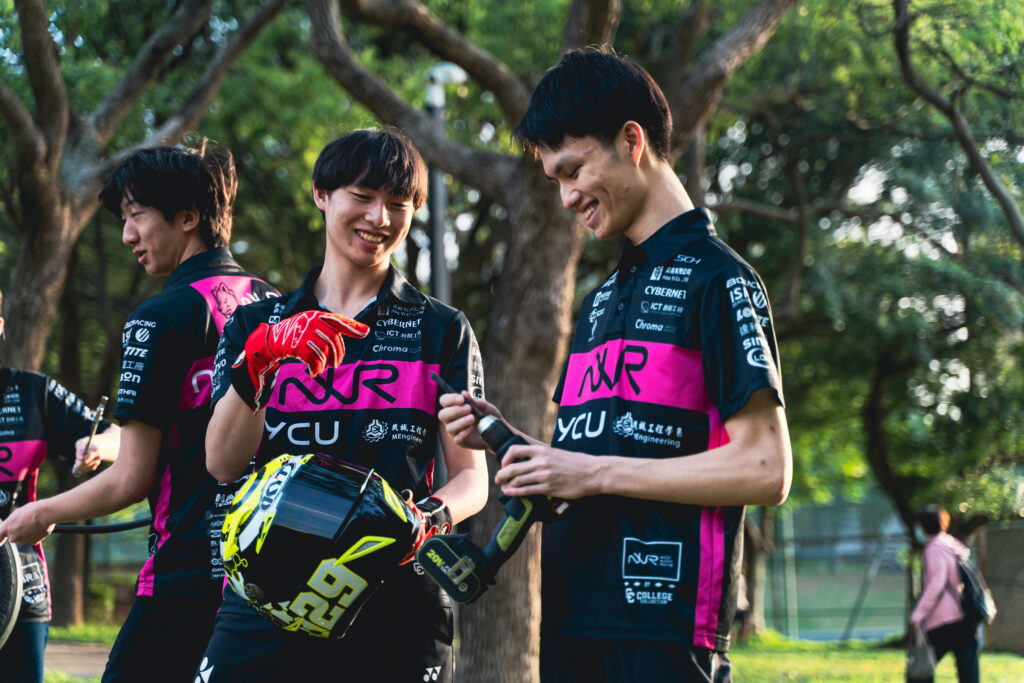
Comrades in arms support each other to increase awareness of car building
The NVR team showed enthusiasm and tenacity, not only to win honors for themselves or their universities but also with the vision of promoting the car-building trend among Taiwanese students. Kuo said frankly that compared to NTUST and NTUT with automobile-related departments, or NTU and NTHU with strong backups from departments, professional faculty, and even funding, it has not been easy for the NVR team to make it all the way to this point with the self-reliant spirit of the team members. However, instead of saying that the fleets from other universities are rivals, they are more like “comrades in arms” who support each other.
“When it comes to maintenance or tuning problems, other fleets are also willing to help, and they are also willing to observe during the car-building process.” Yang shared, “Last time, I burnt out my welding machine and had to go to NTHU to have it welded. Even when I went to an international competition field, everyone was willing to lend me a wrench or a screw. That is the best thing about student racing!” At present, all the student fleets in Taiwan have also formed a contact group called “Taiwan Grand Fleet” to share technical problems and the latest information with each other, which has had a considerable degree of influence on increasing the overall awareness of student car building in Taiwan in recent years.
The NVR team will push their hand-built race cars into the international competition field this September. Despite the significant funding gap, the busy schoolwork as usual, and the ever-present technical difficulties, every team member is convinced that no matter the final result, every drop of sweat and tear as the car races on the racetrack will have been worth it.
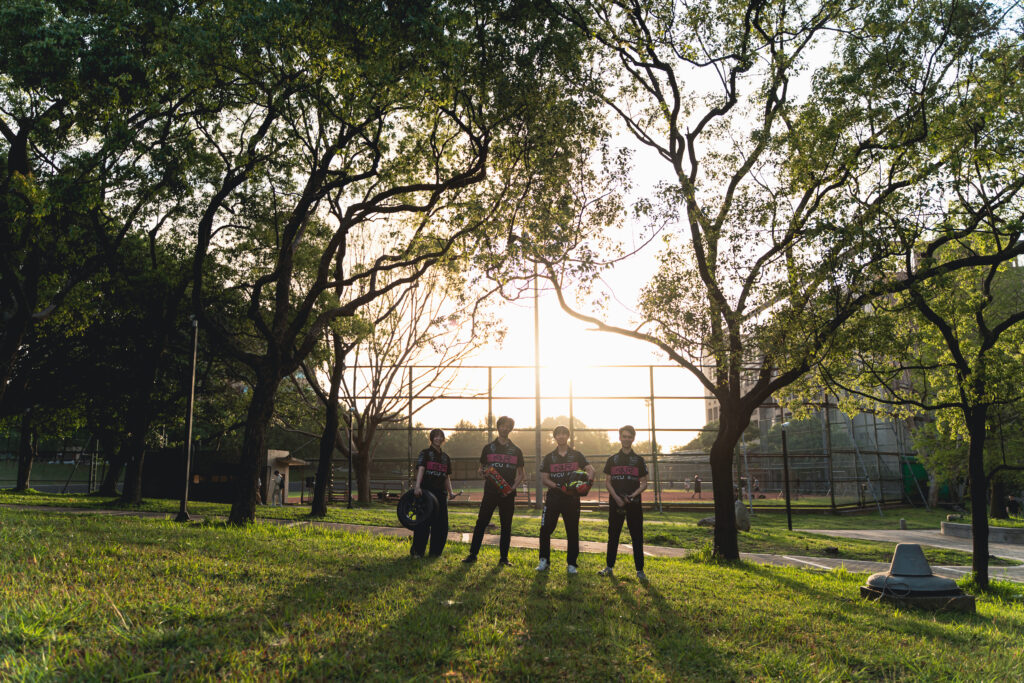
Special thanks to NVR team instructor, Assistant Professor Shih-Sin Wei from the Department of Mechanical Engineering at NYCU, and all the crew members who participated in the video shoot.
Interview |Fu-Kuo Chu
Translation | Yi-Chen Emily Li
Editing | Hsiu-Cheng Faina Chang
Photography | Hao-Yun Peng and Zong-Han Lyu / ZDunemployed Studio
